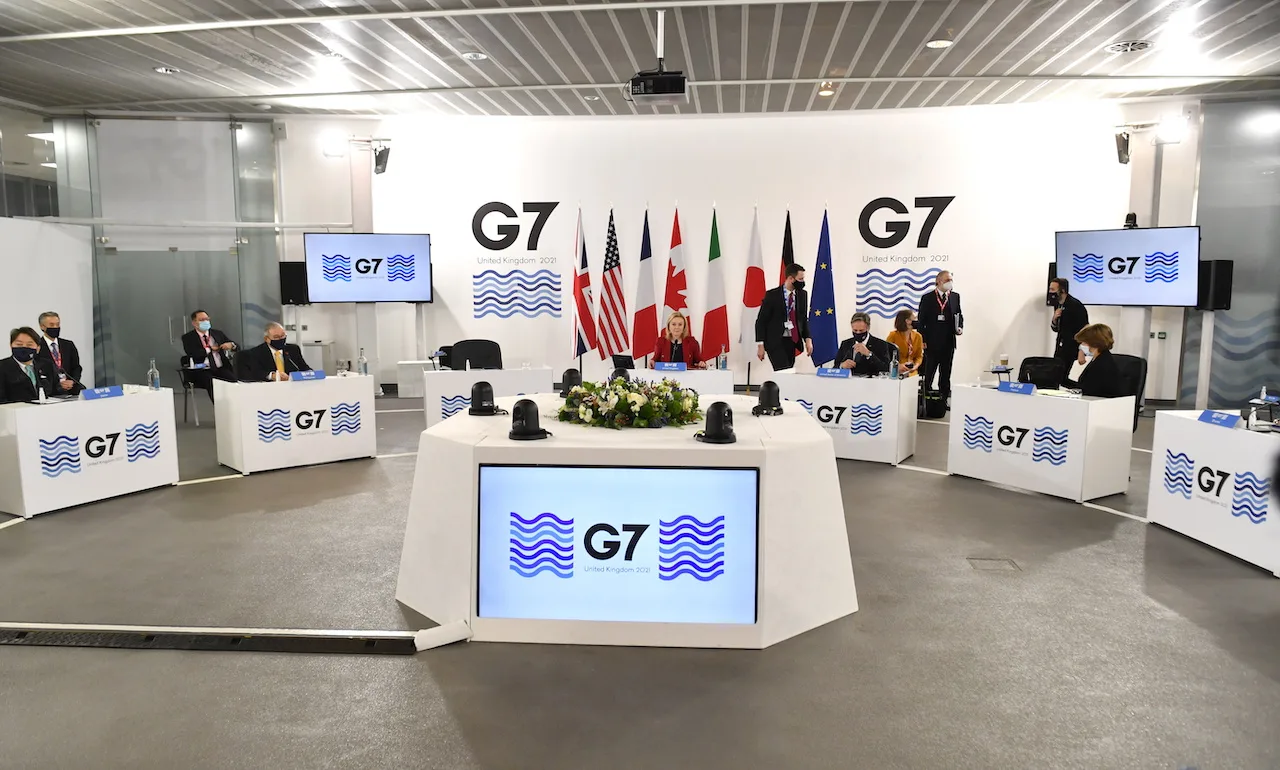Group of Seven superior countries ought to adopt “risk-primarily based totally” law on synthetic intelligence, their virtual ministers agreed on Sunday (Apr 30), as European lawmakers hurry to introduce an AI Act to put into effect regulations on rising gear along with ChatGPT.
But such law ought to also “hold an open and allowing environment” for the improvement of AI technology and be primarily based totally on democratic values, G7 ministers stated in a joint declaration issued on the stop of a two-day assembly in Japan.
While the ministers regarded that “coverage units to obtain the not unusualplace imaginative and prescient and aim of straightforward AI may also range throughout G7 members”, the settlement units a landmark for the way essential international locations govern AI amid privateness worries and safety risks.
“The conclusions of this G7 assembly display that we’re in reality now no longer by myself in this,” European Commission Executive Vice President Margrethe Vestager advised Reuters in advance of the settlement.
Governments have specifically paid interest to the recognition of generative AI gear along with ChatGPT, a chatbot advanced via way of means of Microsoft Corp-sponsored OpenAI that has emerge as the fastest-developing app in records considering the fact that its November release.
“We plan to convene destiny G7 discussions on generative AI that may consist of subjects along with governance, a way to shield highbrow belongings rights which include copyright, sell transparency, deal with disinformation” which include facts manipulation via way of means of overseas forces, the ministerial declaration stated.
Italy, a G7 member, took ChatGPT offline remaining month to research its capability breach of private statistics regulations. While Italy lifted the ban on Friday, the pass has stimulated fellow European privateness regulators to release probes.
EU lawmakers on Thursday reached a initial settlement on a brand new draft of its upcoming AI Act, which include copyright safety measures for generative AI, following a name for global leaders to convene a summit to manipulate such technology.
Vestager, EU`s tech law chief, stated the bloc “could have the political settlement this year” at the AI copyright legislation, along with labelling responsibilities for AI-generated pics or music.
Japan, this year’s chair of G7, meanwhile, has taken an accommodative method on AI builders, pledging help for public and business adoption of AI.
Japan was hoping to get the G7 “to agree on agile or bendy governance, instead of preemptive, catch-all law” over AI technology, enterprise minister Yasutoshi Nishimura stated on Friday in advance of the ministerial talks.
“Pausing (AI improvement) isn’t always the proper response – innovation ought to hold growing however inside sure guardrails that democracies should set,” Jean-Noel Barrot, French Minister for Digital Transition, advised Reuters, including France will offer a few exceptions to small AI builders below the imminent EU law.
Besides highbrow belongings worries, G7 international locations regarded safety risks. “Generative AI … produces faux information and disruptive answers to the society if the statistics it is primarily based totally is faux,” Japanese virtual minister Taro Kono advised a press convention after the settlement.
The pinnacle tech officers from G7 – Britain, Canada, the EU, France, Germany, Italy, Japan and the United States – met in Takasaki, a metropolis approximately 100km northwest of Tokyo, following power and overseas ministers’ conferences this month.
Japan will host the G7 Summit in Hiroshima in overdue May, in which Prime Minister Fumio Kishida will talk AI regulations with global leaders.


